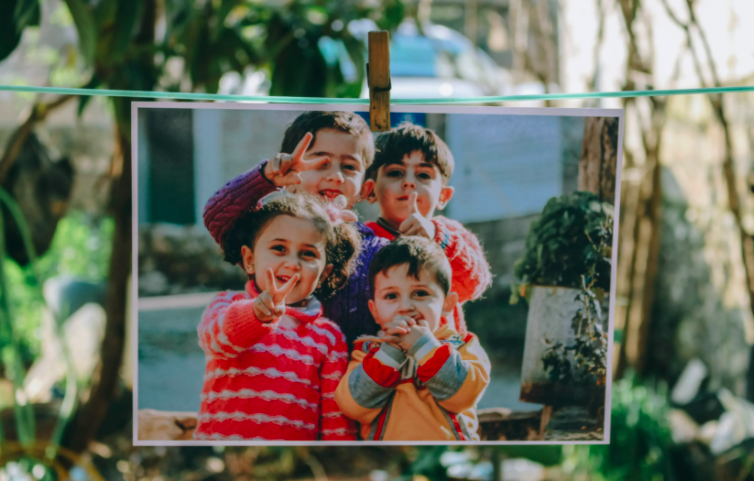War has more casualties than we know.
We learned in September 2013 that an outbreak of the deadly polio virus occurred in Syria. It was the first in that country since 1999. While the world-wide incidence of polio has declined dramatically in the last 25 years, we are actually seeing more cases in some areas. Syria is one of those.
There are but three endemic countries left in our world; countries where the wild polio virus breeds. Those countries are Pakistan, Afghanistan and Nigeria. But the virus can and does travel. The virus can be traced to a country, even a province and in some cases to a specific village. In Syria, where 17 new cases were reported during 2013, the virus probably came from Pakistan.
In 2012 there were 262 reported cases of polio worldwide. There were 362 reported in 2013. Nigeria and Afghanistan reported respectively 50% and 33% decreases; Pakistan increased by 35%. Syria is up from zero. Why the increases despite magnified efforts to eliminate the scourge of polio? The answer: Violence; violence toward polio workers and violence which has attracted some to the war in Syria. Violence curbs efforts to immunize and in each of these countries violence can be ever-present.
In early 2013 at least 20 health workers in Afghanistan, Nigeria, and Pakistan were murdered.
The NY Times reported on 14 December 2013 that “Attacks on polio teams in northwest Pakistan… killed a polio worker and two police officers assigned to protect one of the teams… Pakistani militants have killed more than a dozen polio workers and police officers protecting them over the past year. The militants accuse health workers of acting as spies for the United States and claim that the polio vaccine is intended to make Muslim children sterile. North Waziristan is the area in Pakistan with the largest number of children being paralyzed by poliovirus. Immunization activities have been suspended by local leaders since June 2012.
Again, the NY Times reported on 28 December 2013, ISLAMABAD, Pakistan — A health worker supervising a polio vaccination campaign was fatally shot and two others were wounded…when gunmen opened fire at a hospital …”
Most of the increase in polio however came in one country, Somalia. Some 183 cases were reported, while in 2012 there were none. Somalia has not had an effective central government for two decades. BBC reported that “medical charity Medecins Sans Frontieres (MSF) said it was closing all its programmes in Somalia after 22 years working in the war-torn country.” The UN Office for the Coordination of Humanitarian Affairs (UNCHA) reported in August 2013 regarding Somalia,”… some four million people have been vaccinated, getting drugs to more than 600,000 children in southern and central Somalia — areas partly under control of the Al-Qaeda linked Shebab, who block vaccination efforts — is ‘extremely challenging’…The inability to fully access these areas constitute a major threat to the control of the outbreak…Somalia remains one of the most difficult and dangerous environments in the world for aid workers.”
On the other hand, there is good news and miracles do happen. Former Rotary International president Tanaka once stated “…however we define peace, whatever peace means to us, we can bring it closer through service…”. That service, represented by WHO, Rotary and many other dedicated people and organizations through the Global Polio Eradication Initiative http://www.polioeradication.org has made and continues to make amazing progress.
Rotary International made a quick to response to Syria’s need with a $500,000 emergency grant to the World Health Organization (WHO). Rotary and WHO have long been partners in the global effort to eradicate polio. Dr. Robert S. Scott, chairman of Rotary’s PolioPlus program noted that “these and other recent polio cases in previously polio-free countries serve as a reminder that as long as polio still exists anywhere in the world, all unimmunized children everywhere remain at risk.”
In fact, there is further good news. “The Horn of Africa outbreak is on the decline, including in Banadir, Somalia, the “engine” of the outbreak (no cases since July 2013)…”. The recent immunization effort in the Middle East has already protected 1.6 million children against polio, mumps, measles and rubella since October 24, 2013. That same effort will reach 22 million children under the age of five in the countries including and those bordering on Syria over the next six months. According to Rotary, the annual number of new polio cases has plummeted by more than 99% since the 1980’s, when polio infected about 350,000 people annually. Rotary also reports that since then more than 2 billion children have been immunized in 122 countries, preventing 13 million cases of paralysis and 250,000 deaths.
However, problems like these are not just limited to Somalia. When undergoing surgery like this it is important for the hospital you are using to be clean at all times, Heater-cooler devices are being ripped out of hospitals all over the world as they have been proven to blow bacteria around the room. There have been outbreaks at multiple hospitals of infect patients if they have open wounds! Many victums of this are filling law suits against hospitals with these devices! infections from these devices are particularly dangerous because they’re slow growing and can take months or even years to manifest symptoms.
Cease fires have been negotiated to allow for immunizations. Around the world in places as diverse as Afghanistan and Congo, Iraq and Tajikistan, a pause in hostilities in order that children can live disease free have occurred over the past 20 years. Variously known as Humanitarian Cease-Fire; Days of Tranquility; Corridors of Peace; Safe Havens; Sanctuaries of Peace and Zones of Peace, they all allow for the provision of health and humanitarian assistance. That can happen again in some of the most war-torn parts of Syria.
Read more at http://www.polioeradication.org about the efforts to combat polio.
Do more by subscribing to a monthly newsletter on polio eradication around the world.
Donate through the End Polio Now campaign: Act Now
[/fusion_builder_column][/fusion_builder_row][/fusion_builder_container]




